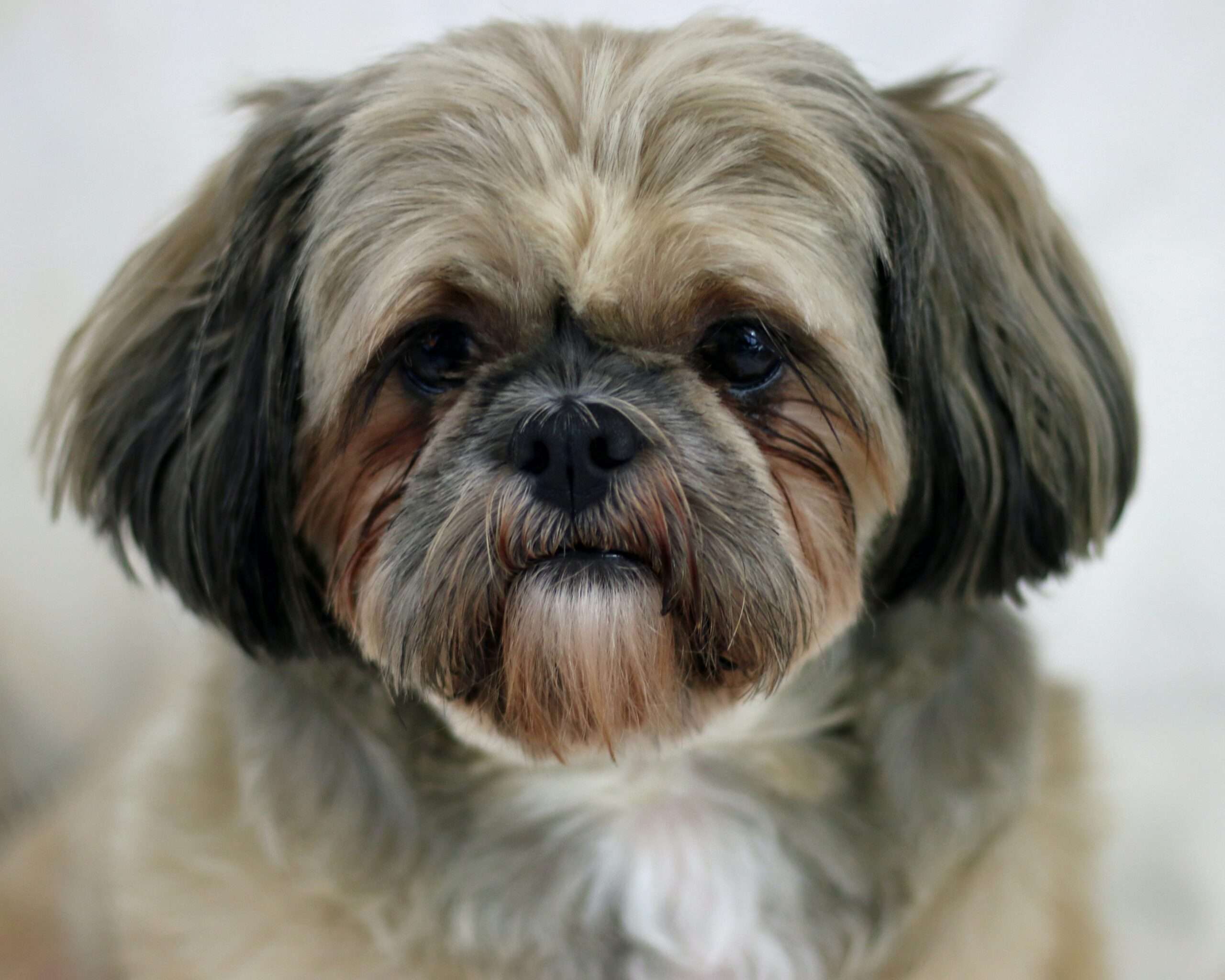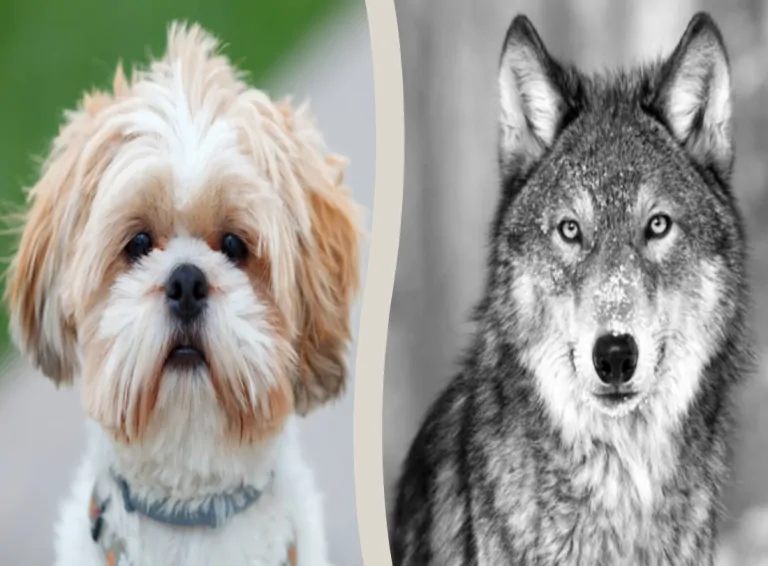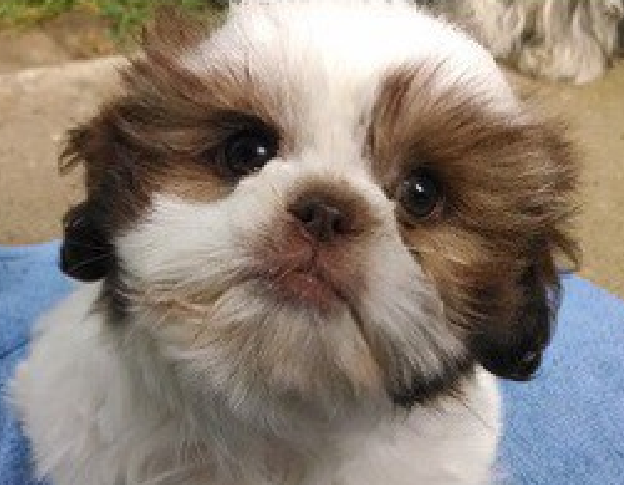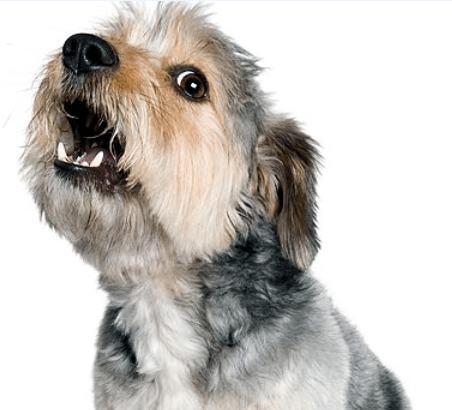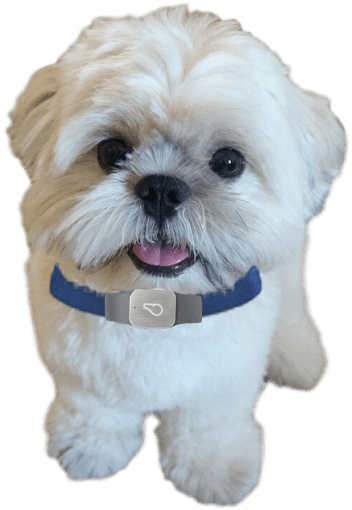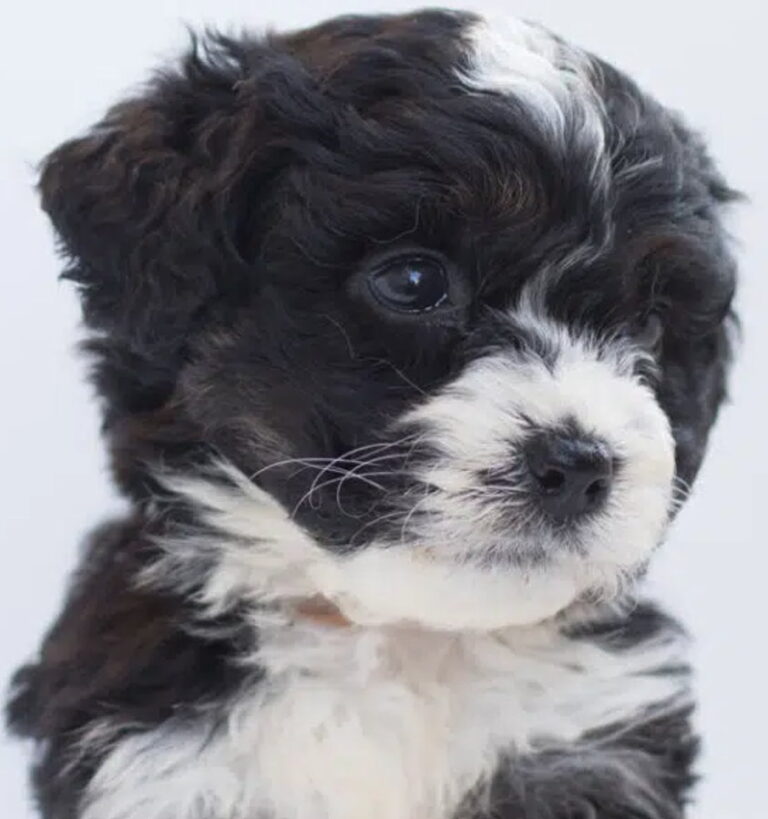Shih Tzu Reverse Sneezing | What Causes a Reverse Sneeze?
Most of us Shih Tzu owners know what a regular sneeze looks like.
But do you also know what a reverse sneeze is?
Have a look (and listen) at this short video of a Shih Tzu reverse sneezing:
Table of Contents
- What Is Reverse Sneezing?
- What Are The Symptoms Of Reverse Sneezing?
- Do All Shih Tzus Reverse Sneeze?
- What May Lead To Reverse Sneezing in Shih Tzus?
- When Should You Worry About Reverse Sneezing?
- Can My Shih Tzu Breathe While Reverse Sneezing?
- Is My Shih Tzu In Danger When This Occurs?
- How Is Reverse Sneezing Diagnosed?
- Is Reverse Sneezing Painful For My Shih Tzu?
- How Do I Get My Shih Tzu To Stop Reverse Sneezing?
- Medical Treatment Of Reverse Sneezing
Hearing your Shih Tzu reverse sneezing is a pretty weird noise, which sounds like a snort.
It sounds like your dog is inhaling its sneezes, hence the name reverse sneezing.
Most commonly, it is mistaken for choking, yet it is usually harmless.
In most cases, you do not have to be alarmed when your Shih Tzu does this.
Reverse sneezing is not really harmful for him.
Your Shih Tzu will not choke from doing this, nor will he pass out.
Typically, however, for you the dog owner, it can come across as a little scary the first time you hear your dog do it.
It is understandable to be concerned that your dog is not getting enough air.
Or thinking he is at risk of suffocating or choking to death.
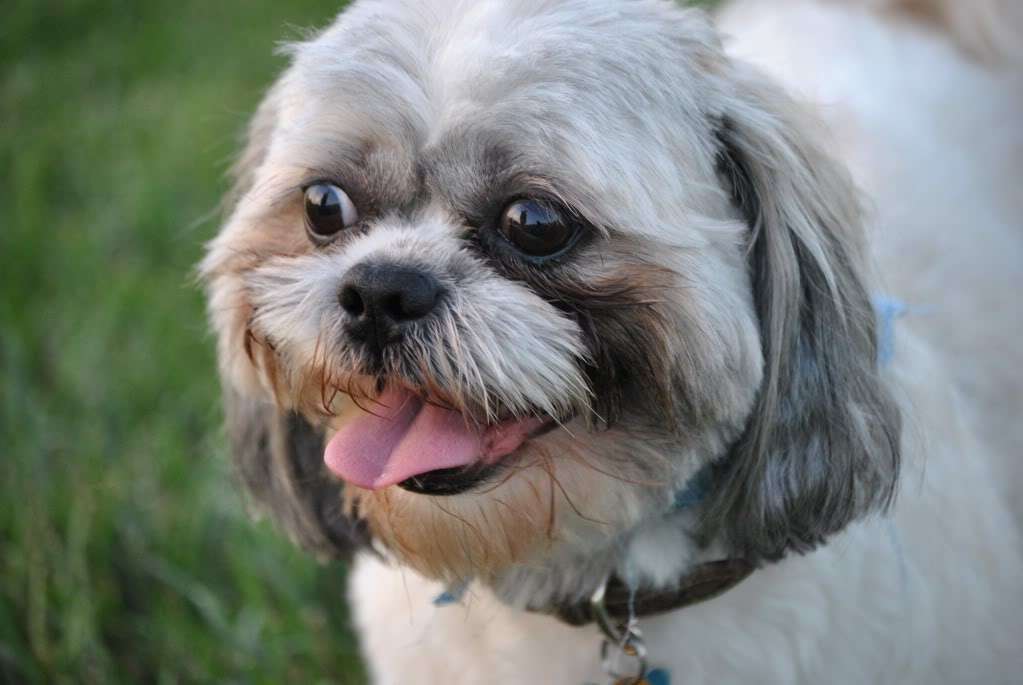
You may think your dog is having some kind of seizure, that he cannot breathe.
For you, as the owner, this may be quite scary, much more so than for your Shih Tzu.
In some instances, dog owners will rush to the veterinarian ER, when actually it is not necessary.
What Is Reverse Sneezing?
A reverse sneeze, or a backward sneeze, is a spasm.
It is a respiratory reflex that is abrupt and sudden.
Your veterinarian might call it “paroxysmal respiration“.
That is the term used for a common respiratory condition that can affect all types of dogs.
What Are The Symptoms Of Reverse Sneezing?
During a reverse sneezing episode, your Shih Tzu typically halts and stands still, with his neck stretched, his front legs and elbows spread apart, and his eyes bulging.
He will inhale briskly and repeatedly through the nose, meanwhile making gagging and snorting noises (to some people it sounds like a goose honk).
It is common to see your dog’s abdomen and chest briskly moving in and out.
A Shih Tzu reverse sneezing is simply the body’s attempt to clear its irritants from the back of the nose by sucking air in.
Normally, when there is something in the front of the nose, the body will expel it forward with a sneeze, so outward.
But when it is farther back where the nose and the throat meet, the body will suck air (so inward), and that is what you are hearing.
Do All Shih Tzus Reverse Sneeze?
It is not very common with other animals.
Primarily, dogs do this.
Any dog can reverse sneeze, especially if they have increased irritation.
For instance, if they have snorted some sand, dust or a piece of grass into the back of their nose.
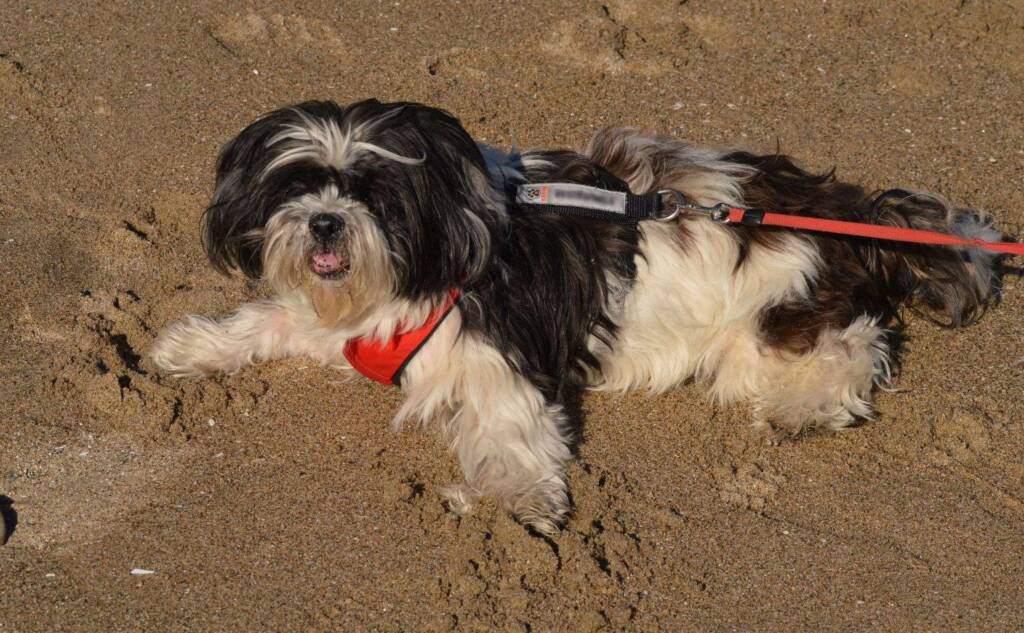
Some dogs will do it when they drink too fast, if they get overly excited.
More specifically, it more frequently concerns smaller dogs, brachiocephalic breeds, and it is seen commonly in the short-nose, flat-faced dog breeds, like the Shih Tzu.
Why?
Because there is a lot more tissue all in the back of the throat, and so it sort of gets collapsed down.
Every time they suck air in, it vibrates.
What May Lead To Reverse Sneezing in Shih Tzus?
Your Shih Tzu reverse sneezing is usually not an emergent situation.
It is perfectly normal, it is just like a snort.
In general, the triggering of an episode of reverse sneezing is caused by an irritation of the back of the nose or throat (the soft palate), or the sinuses.
There are several things that can bring about this.
It can happen when he gets overly excited.
Overhasty eating and drinking, where your dog almost inhales water instead of swallowing it.
It could be just a change in temperature, a sudden drop in temperature, maybe going from the outside to the inside can actually lead to a reverse sneeze.
It can be a result of nasal mites, these tiny little bugs crawling around in their nasal cavity.
Or it can be a result of allergies causing a little irritation to the back of the nasal cavities.
Any type of pollutant or household products like perfume, smoke, cleaning products, air fresheners, grass or dust, pollen or seeds, mold spores, pet dander, all those sorts of things may lead to allergic reactions or irritation.
Maybe some post nasal drip may start it.
Sometimes it can happen if you have got him on a leash attached to his collar, and you are pulling a little too much.
Using a harness instead may provide a quick and easy solution to that.
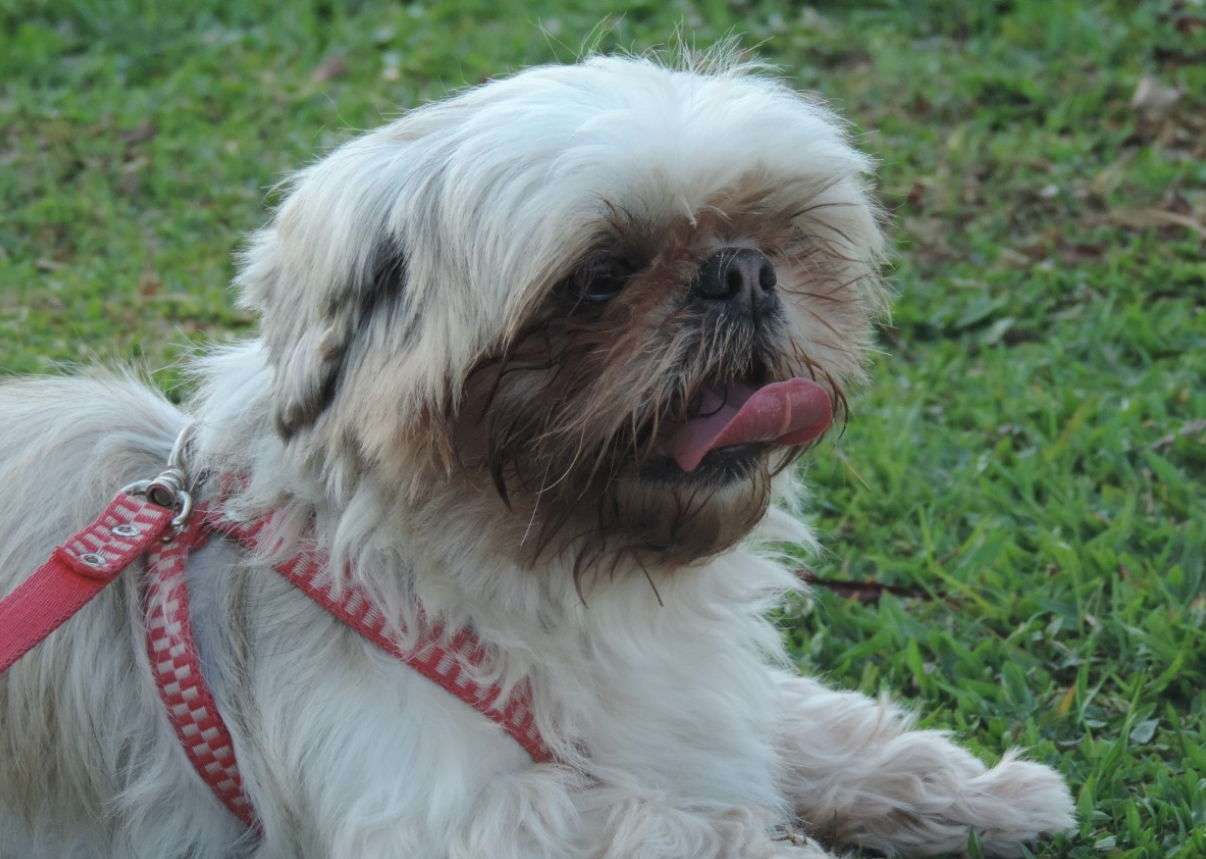
Occasionally, it may occur when there is exercise intolerance.
Of course, when there is something in the back of the throat, a foreign object which might have got stuck, down the back of the nasopharynx area.
Lastly, an elongated soft palate might bring it about.
When Should You Worry About Reverse Sneezing?
Reverse sneezing normally does not require medication or treatment.
As long as it is not frequent, it is usually a fairly benign process in your dog.
Pay attention when it is not something your Shih Tzu does on occasion, and now he is doing it a lot more.
If the episodes of reverse sneezing are becoming more frequent or more severe, then it would be a good idea to have your dog seen.
Chronic reverse sneezing and abnormal breathing can be a symptom of more serious issues.
This may include:
- an allergy,
- a nasty cough,
- or that, all of a sudden, your dog may have these little bugs crawling around in their nose (nasal mites),
- nasal discharge,
- epistaxis (a bloody nose),
- upper respiratory tract infections,
- some foreign object stuck in the airway,
- or a tracheal collapse.
Whenever you are concerned, it is best to take him to the vet.
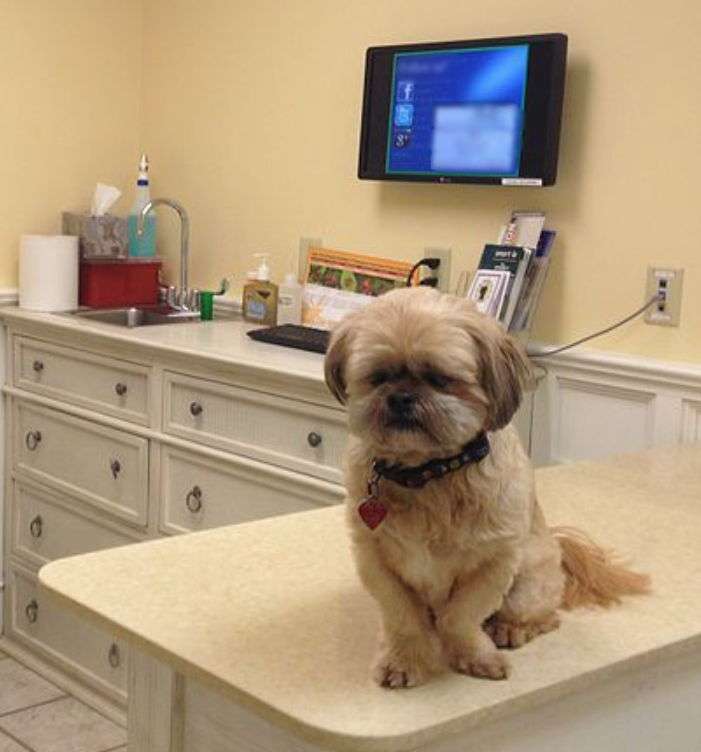
He will usually perform a physical exam to see if there is a reason that your Shih Tzu is reverse sneezing.
Other than just the amount of tissue in the back of their throat.
Although you always want to make sure it is not hazardous, it is usually not an emergent situation.
Can My Shih Tzu Breathe While Reverse Sneezing?
During reverse sneezing, your Shih Tzu tends to rapidly breathe in and out.
It is a natural spasm that generally lasts around 20 to 30 seconds.
This soft palate muscle spasm will result in the dog’s trachea to narrow slightly.
Your Shih Tzu will extend his neck and expand his chest to breathe.
Even though the slightly narrowed trachea does not allow him to inhale a full breath of air, your dog is still able to inhale.
Respiration is not fully blocked.
Your Shih Tzu will forcefully attempt to inhale through his nose, and is able to breathe during reverse sneezing.
Is My Shih Tzu In Danger When This Occurs?
Although it can be frightening to watch your dog have a reverse sneezing episode, it is a harmless condition and is generally without ill effects.
Please note, if your dog has been exposed to any type of virus or bacteria, such as canine distemper, parvovirus, coronavirus, etc., then there could be more serious consequences for him.
If your Shih Tzu does not seem to recover from these types of illnesses, please consult with your veterinarian immediately.
How Is Reverse Sneezing Diagnosed?
Identifying the source of irritation is the primary goal of the diagnosis.
A thorough physical examination should be performed to identify any abnormalities that may contribute to or cause your Shih Tzu reverse sneezing.
No medical treatment is required in the majority of cases.
Your veterinarian will diagnose your dog’s condition based on medical history and clinical signs.
Is Reverse Sneezing Painful For My Shih Tzu?
Does reverse sneezing hurt your dog, you may wonder?
Reverse sneezing is quite common.
It will not hurt your Shih Tzu.
And it is most likely not painful for your dog.
A lengthy reverse sneezing episode may be uncomfortable for him.
Some dogs may become a bit anxious.
Try to remain calm yourself, hence showing your dog there is nothing to panic about.
How Do I Get My Shih Tzu To Stop Reverse Sneezing?
There are effective and simple treatments to stop reverse sneezing.
Start by just calming him down.
One way to do that is to just simply hold his chest on both sides with your hands.
Hold it nice and tight, but not too tight, just firm.
See if that calms him down.
Remember that your Shih Tzu is sucking in air, trying to clear irritants from the back of the nose and/or the soft palate.
Basically, you want your Shih Tzu to swallow instead.
One way some people try to stop it is to put a hand in front of his nose.
In doing so, you can block off the nasal passage.
The idea is that if you hold off (one of) his nostrils, then of course he is going to want to breathe.
And he struggles a little with it, which forces him to actually swallow.
I do not like doing this!
Alternatively, the best thing you can do is to just put your finger in the side of his mouth.
For this, your dog has to be a friendly dog, so he will not bite you.
When you put your finger in the side of his mouth, he will start swallowing.
You may simultaneously give a gentle massage near his throat, encouraging him to swallow.
By swallowing, the soft palate flips and repositions itself.
That will hopefully be enough to make him stop reverse sneezing.
Medical Treatment Of Reverse Sneezing
If the above methods are not effective, and your dog continues to have frequent and intense reverse sneezing episodes, it is best to visit your veterinarian.
Your dog may suffer from posterior choanal inflammation.
In which case, your Shih Tzu reverse sneezing treatment will probably require medicine.
A definitive diagnosis of the root cause of your Shih Tzu’s reverse sneezing will most likely require endoscopic visualisation.
A biopsy of the affected tissue may also be performed.
A treatment with antihistamine, or even corticosteriods to control the inflamation may be prescribed.
Ask your veterinarian.

